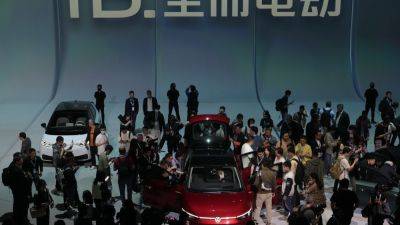Why There’s Hope for U.S. Factory Towns Laid Low by the ‘China Shock’
For much of the last half century, economic life in the heart of North Carolina has been dominated by factory closings, joblessness and downgraded expectations. Textile mills and furniture plants have been undercut by low-priced imports from Mexico and China. Tobacco processing jobs have disappeared.
Yet over the last several years, an infusion of investment in cutting-edge industries like biotechnology, computer chips and electric vehicles has lifted the fortunes of long-struggling communities.
North Carolina presents a conspicuous example of this trend, yet a similar story is playing out elsewhere. From industrial swaths of the Midwest to factory towns in the South, areas that suffered the most wrenching downsides of trade are now capturing the greatest shares of investment into forward-tilting industries, according to research from the Brookings Institution, a public policy research organization in Washington.
Brookings researchers examined pledges of private investment across the United States, using data compiled by the Biden administration as part of its campaign to subsidize domestic production of computer chips and electric vehicles. They also tapped a Massachusetts Institute of Technology database that tracks investments in clean energy. Over the last three years, $736 billion in investment has been promised for these key industries, the researchers found.
When they mapped the investments, the Brookings team concluded that nearly a third of the total is flowing into communities that experienced the worst effects of the so-called China Shock — the factory closures that followed China’s entry to the global trading system in 2001.







